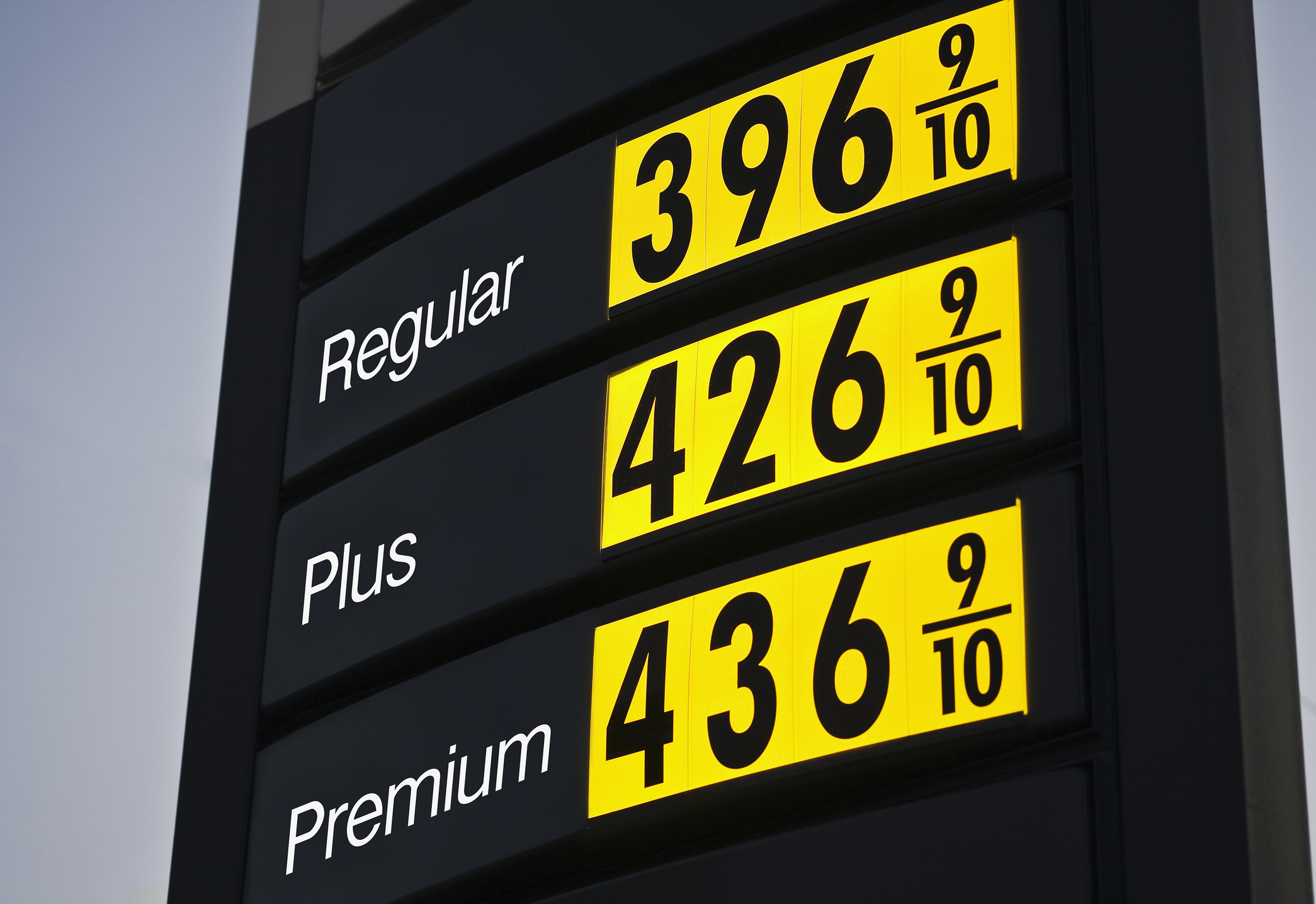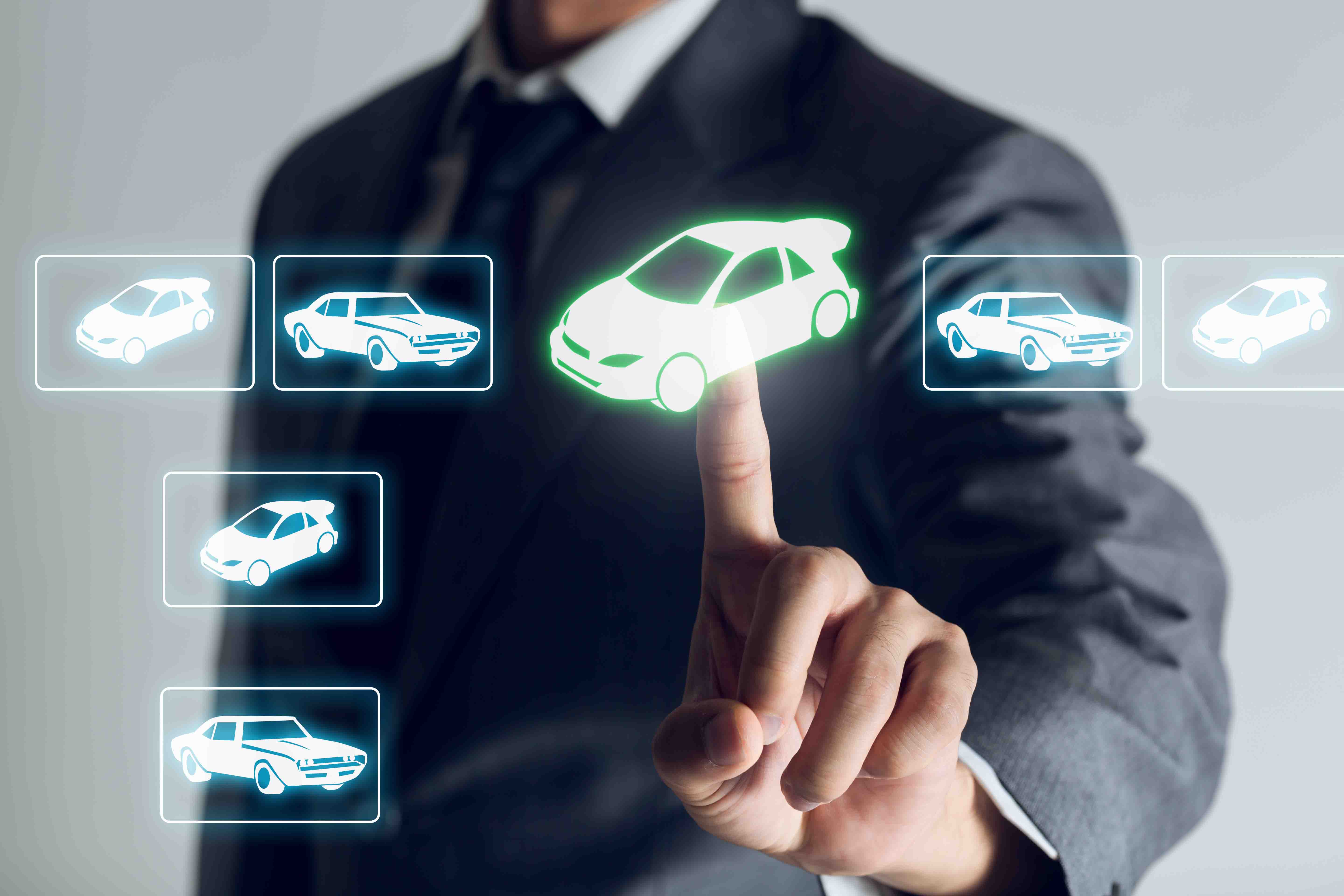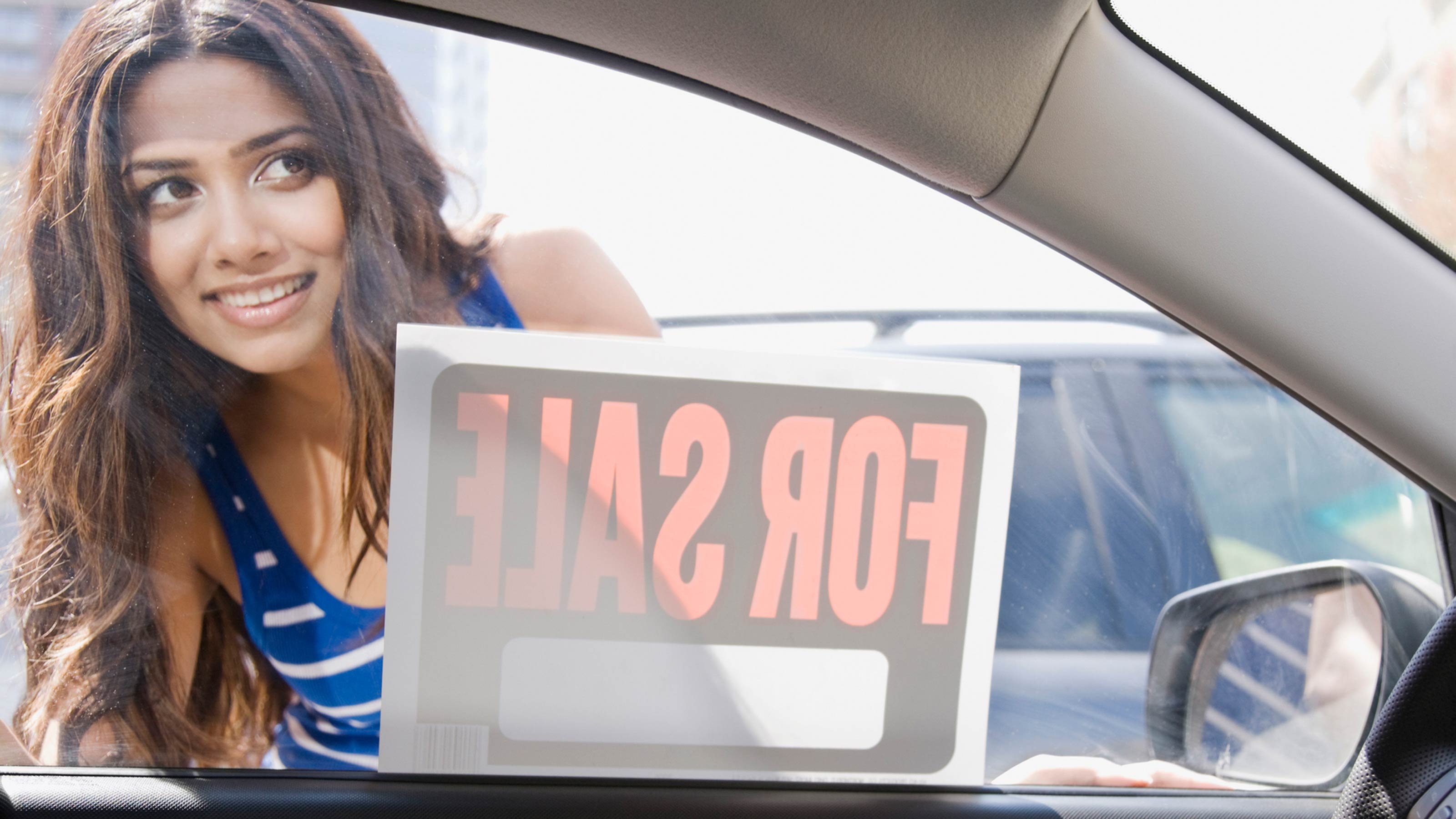Five Myths About Leasing a Car
Learning the facts could save you a bundle.


Profit and prosper with the best of Kiplinger's advice on investing, taxes, retirement, personal finance and much more. Delivered daily. Enter your email in the box and click Sign Me Up.
You are now subscribed
Your newsletter sign-up was successful
Want to add more newsletters?

Delivered daily
Kiplinger Today
Profit and prosper with the best of Kiplinger's advice on investing, taxes, retirement, personal finance and much more delivered daily. Smart money moves start here.

Sent five days a week
Kiplinger A Step Ahead
Get practical help to make better financial decisions in your everyday life, from spending to savings on top deals.

Delivered daily
Kiplinger Closing Bell
Get today's biggest financial and investing headlines delivered to your inbox every day the U.S. stock market is open.

Sent twice a week
Kiplinger Adviser Intel
Financial pros across the country share best practices and fresh tactics to preserve and grow your wealth.

Delivered weekly
Kiplinger Tax Tips
Trim your federal and state tax bills with practical tax-planning and tax-cutting strategies.

Sent twice a week
Kiplinger Retirement Tips
Your twice-a-week guide to planning and enjoying a financially secure and richly rewarding retirement

Sent bimonthly.
Kiplinger Adviser Angle
Insights for advisers, wealth managers and other financial professionals.

Sent twice a week
Kiplinger Investing Weekly
Your twice-a-week roundup of promising stocks, funds, companies and industries you should consider, ones you should avoid, and why.

Sent weekly for six weeks
Kiplinger Invest for Retirement
Your step-by-step six-part series on how to invest for retirement, from devising a successful strategy to exactly which investments to choose.
Leasing often gets a bad rap. And no wonder: Its confusing terms sound like fodder for a course in high finance, and dealers have been known to slip bad deals past confused car buyers who simply wanted low monthly payments.
About 30% of new-car transactions are leases, but I'm convinced that more people should be leasing. As manufacturers figured out that the cash rebates they offered were hurting resale values, and as the credit spigot began to flow freely again, carmakers shifted incentives from rebates to low-interest financing and leases. If you know what you're looking for and negotiate smartly, you can save money by leasing and disprove the five myths below.
1. Leasing is a bad deal. In general, if you keep a car well past the day the loan is paid off (or if you pay cash to begin with), you'll save money by buying. But if you trade in your car before the loan is paid off, the value of the trade-in is unlikely to cover the remaining balance on the loan. And if you shop -- and negotiate -- as hard for a lease deal as you would for a purchase, you can come out ahead by leasing.
From just $107.88 $24.99 for Kiplinger Personal Finance
Become a smarter, better informed investor. Subscribe from just $107.88 $24.99, plus get up to 4 Special Issues

Sign up for Kiplinger’s Free Newsletters
Profit and prosper with the best of expert advice on investing, taxes, retirement, personal finance and more - straight to your e-mail.
Profit and prosper with the best of expert advice - straight to your e-mail.
Say you negotiate to buy a 2013 Nissan Altima 2.5 S (sticker price: $23,365) for invoice price -- $21,403 -- with 10% down and a five-year loan at 2.9%. But after three years you decide you want a new car. If you trade in the Altima, you will likely get about 46% of the sticker price, or $10,621 (the resale value after three years, according to the Kelley Blue Book). Then you'll have to pay off the loan. Figure your total out-of-pocket cost will be $9,525.
But if you lease that new Altima for three years, your monthly payments will be $179 with a $1,820 down payment (Nissan has been offering subsidized leases on the 2013 Altima). When you turn in the car at the end of the lease, you'll just walk away (unless you go over your mileage allotment or have unusual wear and tear). Total out-of-pocket cost: $8,264. In this case, leasing would leave you $1,261 richer.
In most states, you pay taxes only on the actual lease payments, so leasing can put you even further ahead (see number 3 below). Plus, you typically don't have to bring cash to the table for a lease.
2. It's nearly impossible to negotiate a good lease. Almost every facet of a lease is negotiable. But first you need to understand the jargon:
Capitalized cost. In the leasing universe, this is the vehicle price. You should haggle over this figure just as hard as you would haggle over the price if you were buying.
Money factor. The lower this number, the better (you have to multiply it by 2,400 to get an estimate of the interest rate). Dealers are sometimes reluctant to reveal the money factor, so be persistent.
Residual value. This is the value of the car or truck at the end of the lease.
An inflated residual value lowers your monthly payments, but it can also handcuff you. A more realistic residual value will make it easier to sell the lease, trade your vehicle in the middle of the lease or buy the vehicle at the end of the lease, says Tarry Shebesta, president of LeaseCompare.com.
Shop for your lease at the dealer, banks and credit unions, focusing on the money factor and the residual value. (No matter who writes your lease, you’ll have to haggle with the dealer over the capitalized cost.) You can also go to LeaseCompare.com to comparison shop and apply for a lease. Or check out LeaseWise. For $350, the service will shop at least five dealers in your area.
3. Only businesses get a tax break. Tax laws allow businesses to deduct monthly leasing payments as an expense.
But individuals get a tax break, too. In most states, you pay sales tax only on the monthly payments, not the vehicle price. In the Altima example above, you'd owe taxes on about $8,264 in payments rather than the $21,403 vehicle price. (Arkansas, Illinois, Maryland, Oklahoma, Texas and Virginia charge sales tax on the entire price.)
4. You will have to pay hefty fees when you turn in the car. The typical annual allotment of 10,000 to 15,000 miles is stingy, and the 20- to 25-cents-per-mile penalty for exceeding the limit seems daunting. But if you buy a car, you're also penalized for higher-than-average mileage when you trade it in.
You may be able to negotiate a higher mileage limit in exchange for a higher monthly payment and still save money.
5. If you want out early, you're stuck. Several fee-based Web sites, including LeaseTrader.com and Swapalease, match people who want to get out of a lease early with those who want to assume a short-term lease. At LeaseTrader.com, you pay a fee of $90 to post your vehicle and $250 to complete the transfer of the lease.
Profit and prosper with the best of Kiplinger's advice on investing, taxes, retirement, personal finance and much more. Delivered daily. Enter your email in the box and click Sign Me Up.

-
 Quiz: Do You Know How to Avoid the "Medigap Trap?"
Quiz: Do You Know How to Avoid the "Medigap Trap?"Quiz Test your basic knowledge of the "Medigap Trap" in our quick quiz.
-
 5 Top Tax-Efficient Mutual Funds for Smarter Investing
5 Top Tax-Efficient Mutual Funds for Smarter InvestingMutual funds are many things, but "tax-friendly" usually isn't one of them. These are the exceptions.
-
 AI Sparks Existential Crisis for Software Stocks
AI Sparks Existential Crisis for Software StocksThe Kiplinger Letter Fears that SaaS subscription software could be rendered obsolete by artificial intelligence make investors jittery.
-
 10 Things You Should Know About Buying a Car Today, Even if You've Bought Before
10 Things You Should Know About Buying a Car Today, Even if You've Bought BeforeIf buying a car is on your to-do list, and it's been a while since you went shopping for a new one, this guide will help avoid any nasty shocks in the showroom.
-
 Get the Best Car Deal in Retirement: Here's the Trick
Get the Best Car Deal in Retirement: Here's the TrickPlanning on shopping for a new car this Labor Day weekend? Here’s how to haggle for a better price, even though you're retired.
-
 7 Gas-Saving Tips That Actually Work
7 Gas-Saving Tips That Actually WorkThese are gas-saving tips that will actually work for you and your car this year.
-
 Want to Lease an EV? The Tax Credit 'Loophole' for That Is Going Away Soon
Want to Lease an EV? The Tax Credit 'Loophole' for That Is Going Away SoonTax Credits If you are deciding whether to lease or buy an electric vehicle, here is what you need to know about how the EV lease tax credit works now that it will be eliminated under Trump's new tax law.
-
 Car Buying in a Topsy-Turvy Market
Car Buying in a Topsy-Turvy MarketYou need a new car? Good luck with that! What should you do? We've got some answers.
-
 Watch Out for Flood-Damaged Cars from Hurricane Ian
Watch Out for Flood-Damaged Cars from Hurricane IanBuying & Leasing a Car In the wake of Hurricane Ian, more flood-damaged cars may hit the market. Car prices may rise further because of increased demand as well.
-
 Car Buyers: The 3-Day Grace Period Is Just a Myth!
Car Buyers: The 3-Day Grace Period Is Just a Myth!Buying & Leasing a Car Many car buyers think they have three days after making a purchase to return a car. Here’s where they’re going wrong, and what they should do instead to get a decent used car.
-
 PODCAST: Car-Buying in an Inflated Market with Jenni Newman
PODCAST: Car-Buying in an Inflated Market with Jenni NewmanBuying & Leasing a Car With cars both scarce and expensive these days, what to do if you want – or need – a new ride? Car-buying strategist Jenni Newman of Cars.com shares some tips. Also, more on the magical 9% savings bond.